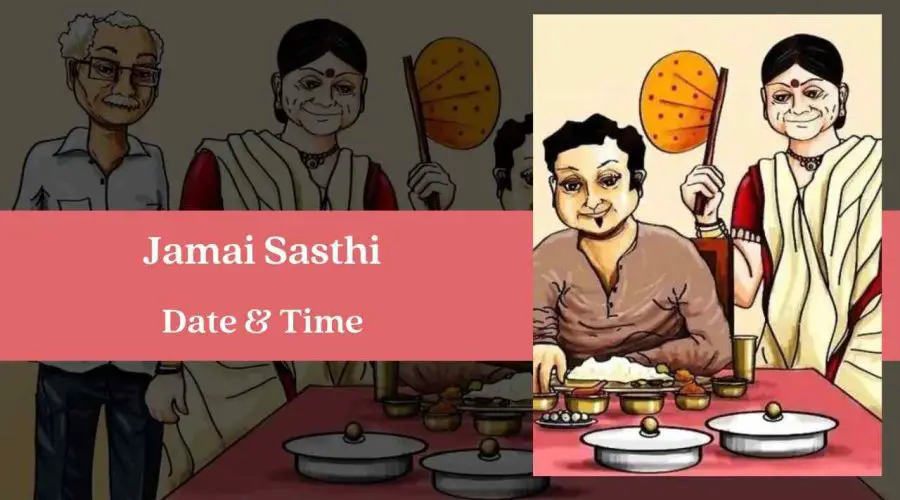Jamai Sasthi 2024: Date, Time, Rituals, and Story
Article Rating
☆☆☆☆☆ 3.9/5
Jamai Sasthi (Son-in-Law Day) is a Bengali national holiday dedicated to the son-in-law (West Bengal, Bangladesh). Jamai sasthi is a prominent celebration in West Bengal. It falls on the sixth day of the Shukla Paksha (Moon Waxing Phase) in the Bengali month of Joishtho (Jaishtho) (May – June). The date for Jamai Sashti 2024 is June 8. Goddess Sashti is worshipped on this day in several locations for the well-being of children.
In a traditional Hindu calendar, ‘Jamai’ signifies son-in-law, while ‘Shasti’ indicates the sixth day in a fortnight. It is customary norm in Bengal to invite and honour sons-in-law on their wedding day. On certain occasions, mother-in-laws prepare unique delicacies, such as Hilsa fish.
Jamai Sasthi Date 2024
Saturday, 8 June 2024
Jamai is a Bengali holiday that is highly respected in Indian culture. The festival’s organisation is an important component of Bengali culture. The term ‘jamai,’ which means’son-in-law,’ implies a close relationship.
The Story Behind Jamai Sasthi
The mother-in-law welcomes her son-in-law and her daughter to the in-laws’ (Shoshur bari) house once a year. The arrival of the daughter and son-in-law was marked by a small social gathering. Bless with a plate of rice, durbo (grass), and five kinds of fruits after bathing in the morning. On the son-in-forehead, law’s a mark or “drop” of yoghurt is put, and a yellow thread is strung around his wrist.
After the sasthi puja, holy water is sprinkled, and the mother-in-law prays for the lifespan of her daughter and son-in-law. Following the puja, the mother-in-law showers her son-in-law with presents and places her hands on his head to wish him a long life. His mother-in-law received several particular gifts from his son-in-law. These rituals are being observed today.
Special Dishes and Rituals on Jamai Sasthi
Lunch is always a lengthy event. The main entrée is surrounded by bowls of finely cooked vegetable curry and several fish curries. A platter piled high with rice or polau. The passage of the human heart is considered to pass via the stomach of a Bengali thali eater. This festival is centred around food. From hot rice to pan-masala, luchi, potato tarkari, fried eggplant, mung dal, onion pakor, various fish flavours, shrimp malaikari, rasgolla, sandesh, mango curd, sweet curd
The woman was driven to the woodland from her home. She grieved, and the goddess Sasthi appeared before him in the form of an elderly man, showing him mercy.
The goddess Sasthi reminded the woman of her previous wrongdoings while the woman expressed her sadness. He confessed his sins and pleaded for forgiveness. She was then instructed to conduct various social rituals in order to reclaim her children. Many ladies were moved by this narrative and began to pray and worship Goddess Sasthi for their children. It gradually returned to ‘Jamai Sasthi’.

